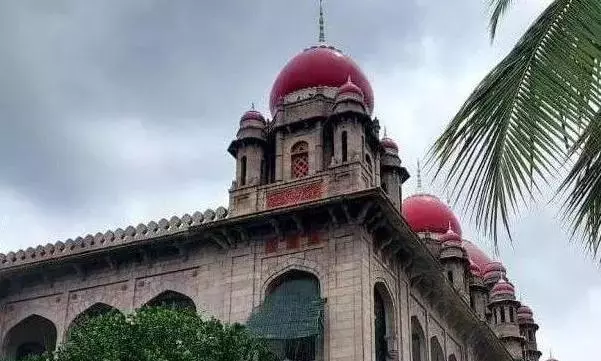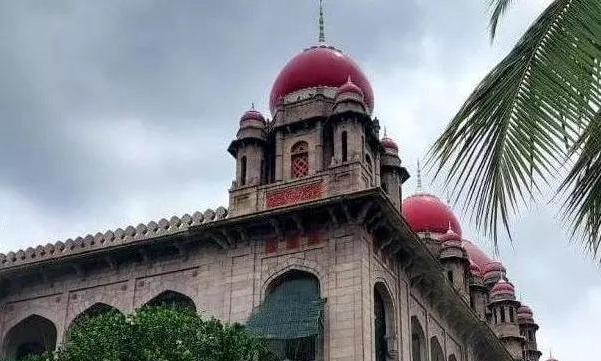
Hyderabad: A two-judge panel of the Telangana High Court ruled that the Andhra Pradesh State Micro and Small Enterprises Facilitation Council is bound to follow Section 18 of Micro, Small, Medium Enterprises Development Act, 2006 (MSME Act).
The provision requires that when a dispute is referred to the MSME facilitation centre, the council shall either itself conduct conciliation or seek assistance of any institution and proceed with arbitration only if such conciliation stands terminated without settlement.
The panel was dealing with an appeal filed by Deccan Power Products Pvt Ltd against the HMWS&SB and others. The HMWS&SB invited tenders from manufacturers of water meters for supply, fixing and maintenance of 1,000 units of 15 mm dia single jet water meter confirming to 180,4064 Class-B and maintenance of existing working meters for a period of three years each under O&M divisions.
The committee finalised the tender in favour of the appellant. It was alleged that the appellant failed to execute the work as per the specifications and that the appellant, in spite of receiving letters from the board, had failed to submit details of maintenance as per the agreement. In view of certain disputes, the appellant moved the facilitation council.
It was the grievance of the petitioner that the council without following due process as envisaged under the MSME Act had passed an award on March 31, 2012. Aggrieved by the award, the parties were before the civil court, which held that the facilitation council had failed to comply with the mandatory provisions which order was under challenge.
Senior counsel A. Venkatesh, appearing for the appellant, pointed out that Section 18 of the MSME Act was not mandatory. He said that even otherwise mere non-compliance of the provisions under Section 18(2) would not by itself vitiate the award, which was passed after hearing both the parties and no prejudice as such would be caused only on account of non-compliance of Section 18(2) of the Act.
The panel of Justice K. Sam Koshy and Justice N. Tukaramji rejected the appeal on a survey of the various pronouncements of High Courts and the Supreme Court. Justice P. Sam Koshy ruled that the award became a nullity in the eye of law and could not be sustained, irrespective of the fact that a considerable period of time had lapsed since the award was passed. What was illegal at the first instance would remain illegal for all times to come and the same cannot be enforceable only on account of the efflux of time that has passed. The bench held that the provisions of Section 18 of the MSME Act were mandatory, and non-compliance would vitiate the award. Since the award itself was passed in 2012 and over 12 years have lapsed, the panel observed that “the facilitation council is expected of immediately seizing of the matter and ensuring an early conclusion of the proceedings as early as possible, preferably within an outer limit of six months from the date either of the parties enter appearance before the council”.
NHAI accused of illegal demolition of compound wall
T. Vinod Kumar of the Telangana High Court took on file a plea alleging illegal demolition of a compound wall at Timmapur village, Kothur mandal, by the National Highways Authority of India (NHAI) and others. The judge was dealing with a writ petition filed by Hoor Fatima and four others, who alleged failure of the respondents to comply with the provisions of the National Highways Act, 1956, and the Right to Fair Compensation and Transparency in Land Acquisition, Rehabilitation and Resettlement Act, 2013.
The petitioners argued that the respondent authorities had failed to comply with the prescribed procedure, such as passing an award, conducting surveys, and ensuring fair compensation before acquiring their land for road development purposes. The petitioners contended that such a high-handed action of the state was unconstitutional.
During the course of the hearing, the judge observed that if the respondents had followed the 3A process of the Act, there might be little recourse. However, counsel for the petitioners argued that under 3B, authorities are required to conduct a survey, demarcate the land, and then proceed with demolition. The petitioners claim that the authorities did not follow the legal procedure and arbitrarily demolished the compound wall at 2 am, which they allege was unlawful and arbitrary. The judge directed the state to respond to the allegation on the next date of the hearing.
State asked to decide on revision petition challenging Rs 8.3 crore penalty
Justice Moushumi Bhattacharya of the Telangana High Court directed the state to decide on the revision petition filed by Mahalaxmi Associates against a penalty of about Rs 8.3 crore imposed on it by the assistant director of mines and geology. The judge was dealing with a writ plea challenging the non-issuance of transit permits during the pendency of the revision.
It was the case of the petitioner that the assistant director had imposed a penalty of Rs 8,31,34,697, including normal seigniorage fee and penalty on the petitioner, on the ground of alleged excess mining. It was the case of the petitioner that it is not liable to pay any seigniorage fee or penalty since the former was deducted from the petitioner’s bills.
It is also the case of the petitioner that they did not carry out any quarry operations outside the quarry lease area and that the entire alleged quantity has been supplied for various government civil works. Counsel for the petitioner informed the court that the revision filed by his client under Rule 35-A of The Telangana State Minor Mineral Concession Rules, 1966, was pending before the authorities since August 22. The judge, considering the facts and circumstances that the petitioner denies liability of seigniorage fee or penalty or otherwise, directed the authorities to dispose of the revision by February 5, 2025.
The judge further directed the petitioner to deposit `20 lakh before the authority concerned by December 27 upon which the assistant director of mines and geology, Warangal, shall issue the transit permits to the petitioner. The judge also made it clear that issuance of transit permits is subject to the outcome of the revision, which is presently pending adjudication.
